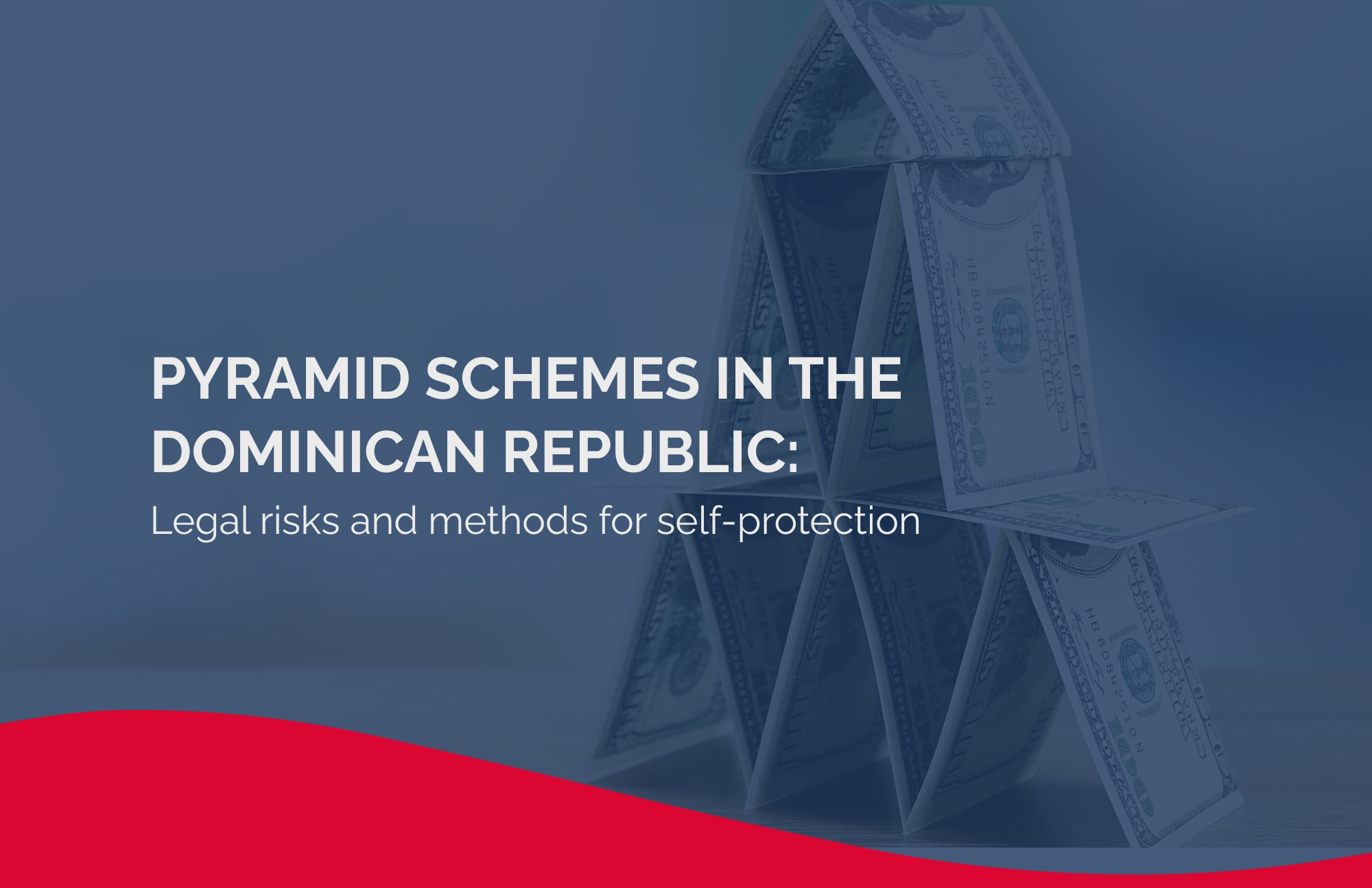
Pyramid Schemes in the Dominican Republic: Legal Risks and Methods for Self-protection
Pyramid schemes are a very common type of fraudulent arrangement today, disguised as highly profitable businesses. The mechanics are simple: investors are promised large returns in exchange for a minimal contribution of money or assets. In practice, however, the funds from new participants are used to pay the initial investors, without any real economic activity generating sustainable profits.
Unlike multilevel marketing systems, where there is at least a real product or service (even if profitability relies more on recruitment than on sales), pyramid schemes have no production or genuine economic value, which inevitably leads to the collapse of the scheme and the loss of money for most participants.
A Historical Gap in Dominican Legislation
For decades, the Dominican Penal Code—over 100 years in force—did not expressly include the figure of the pyramid scheme. These practices were prosecuted under the criminal offenses of fraud or breach of trust, which carried limited penalties, usually not exceeding two years in prison. This created a framework of impunity in which the legal consequences were minimal compared to the economic and social harm caused.
The New Legal Framework: Law 74-25
With the enactment of the new Penal Code (Law 74-25), specific provisions addressing pyramid schemes were introduced in Articles 240 through 242. The law defines them as a form of fraud disguised as a business scheme, whose real purpose is the recruitment of people to collect money or digital assets (cryptocurrencies, tokens, NFTs, or other digital documents with financial value), under the deceptive promise of future returns.
In this sense, the legislator clarifies that all systems in which there is no real business involving goods, services, or legitimate investments—properly authorized and verifiable according to current economic standards—will be considered pyramid schemes.
Penalties
The new Penal Code establishes harsher penalties proportional to the seriousness of the offense:
-
Basic penalty: Major imprisonment from 5 to 10 years and a fine of 1 to 20 times the amount involved in the offense.
-
Aggravated penalty: Major imprisonment from 10 to 20 years and a fine of 1 to 20 times the amount involved in the offense, in the following cases:
-
When the perpetrator is a public official or falsely claims to have authority.
-
If traditional or digital media (press, television, social networks, etc.) are used to promote or disseminate the scheme.
-
When the victims are people in vulnerable situations due to age, sex, pregnancy, or other special conditions.
-
Recommendations to Avoid Falling Victim to These Schemes
At Alburquerque Abogados, we recommend that citizens and our clients take preventive precautions to identify and avoid potential fraud:
-
Be skeptical of promises of quick and disproportionate profits. Legitimate businesses involve risks and reasonable returns.
-
Verify the existence of a real product or service. If income depends almost exclusively on recruiting new members, that’s a red flag.
-
Confirm the company’s legality. Check if it is registered with the competent authorities and holds the necessary authorizations.
-
Investigate backgrounds. Look up information on the promoters and check for official complaints or warnings.
-
Avoid investing in schemes based exclusively on digital assets whose profitability is not backed by legitimate operations.
-
Seek advice from legal and financial professionals before committing your money to projects without clear support.
Pyramid schemes pose a persistent threat to investors and the broader economy. The tightening of penalties in the new Dominican Penal Code is an important step toward protecting citizens. However, the first line of defense will always be the prevention and due diligence of those who choose to invest.
At Alburquerque Abogados, we leverage our legal expertise to guide and support our clients in evaluating safe investments and defending their rights against potential fraud.